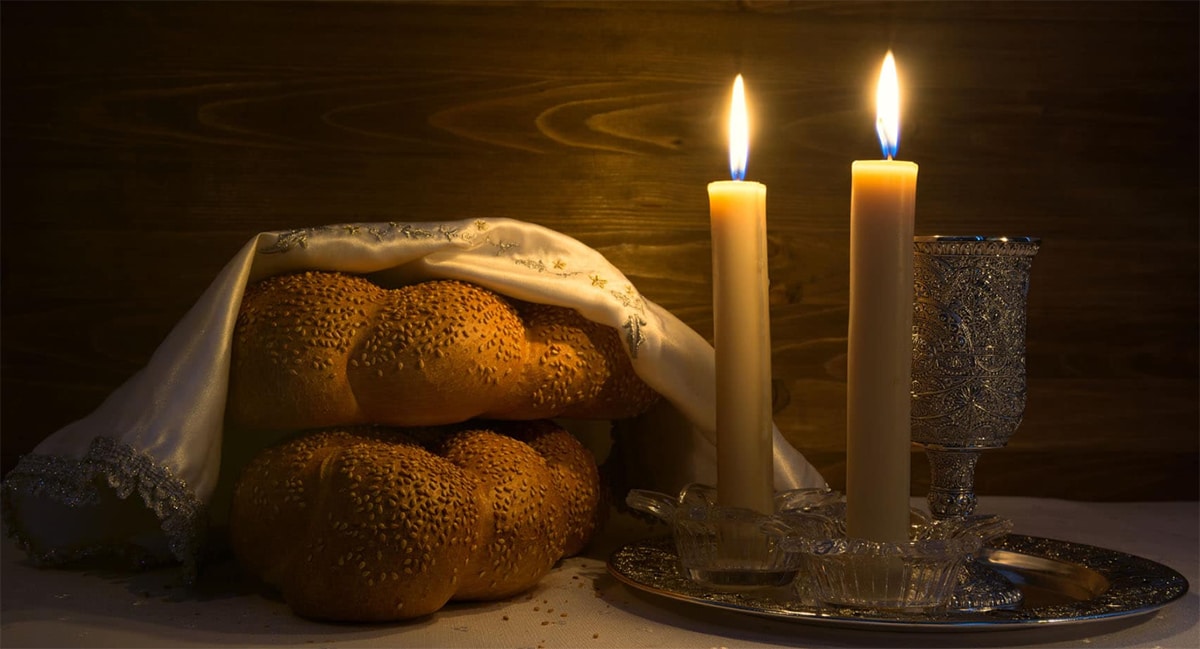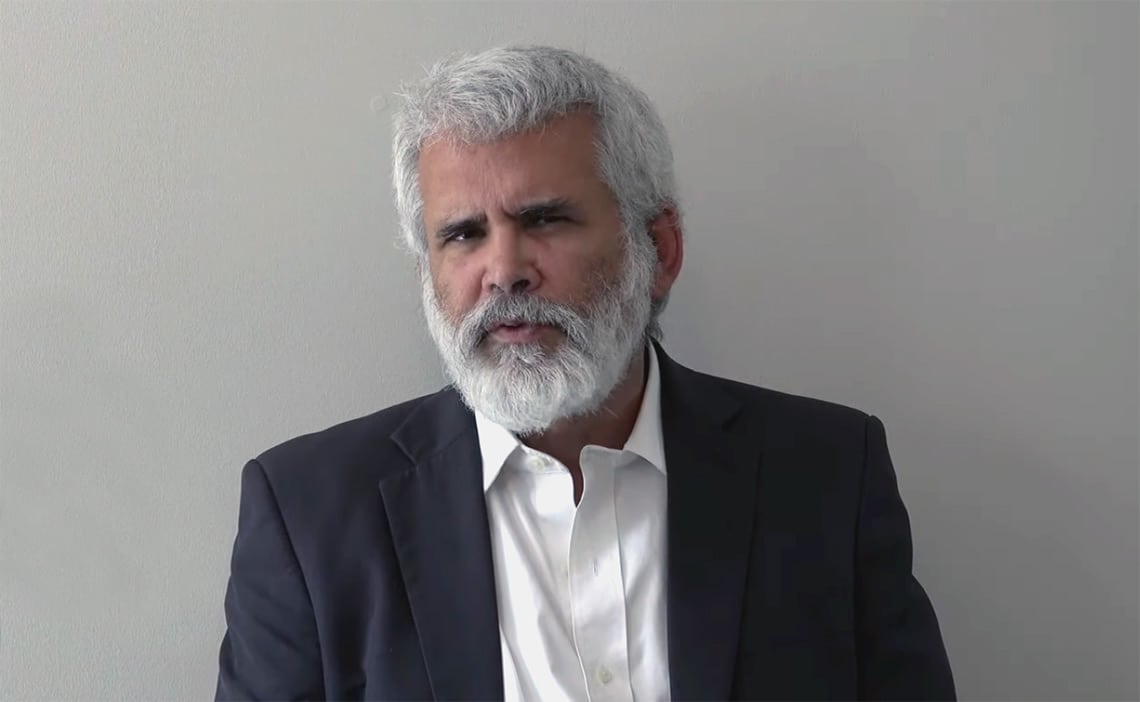

Being vs. Having (Chrono-Politics, Part 3)
by W.D. James | Jul 24, 2024
What could a businessman ever want more
Than to have us sucking in his store
We owe you nothing, you have no control
You are not what you own
– Fugazi, Merchandisei
As we saw in the essays on Josef Pieper, the modern world threatens to produce a regime of ‘total work.’ He had advocated for us recovering an understanding of ‘leisure’ and the deeper realms of existence he identified as celebration and festivity to counter that. Abraham Joshua Heschel (1907-1972) will follow some similar lines of thought as he develops the full significance of the Jewish idea of ‘Sabbath.’ However, he will also draw attention to the fact that while, by and large, we have to work, we can also become complicit in colonizing all of time for the demands of work. There are in fact ‘workaholics.’
Heschel was descended from a long line of rabbis and was born in Poland. He studied in Germany and lived there until 1938 when he was arrested by the Nazis and deported back to Poland. Just shortly before the German invasion of Poland in 1939, he immigrated to England and eventually the United States, teaching for a time at Hebrew Union College in Cincinnati, Ohio, and then at the Jewish Theological Seminary of America in New York.
Heschel’s thought was rooted in the specific forms of Judaism characteristic of Eastern Europe; forms of life and thought that were largely destroyed by the implementation of the Nazi ‘final solution’ and murder of a large portion of Eastern European Jewry. He was active in the American Civil Rights movement and the anti-war movement. He incorporated elements of Jewish mysticism, such as Kabbala and Hasidism, while crossing the traditional lines between reform and conservative Judaism. That is, he’s just my kind of guy in looking to the old/deep elements in religion and crossing cultural and political boundaries and also seeking ways to speak to modern peoples in modern ways that are deeply informed by tradition. In the specific realm of Jewish life, perhaps it is not too wrong to think of Heschel doing at a philosophical level what Fiddler on the Roof did at a more popular level.ii

The Sabbath
It’s a curious thing that the Sabbath, a day of rest, comes as a command in the Hebrew scriptures; it is part of the Mosaic law:
“Remember the Sabbath day, to keep it holy.
Six days you shall labor and do all your work,
but the seventh day is the Sabbath of the LORD your God. In it you shall do no work: you, nor your son, nor your daughter, nor your male servant, nor your female servant, nor your cattle, nor your stranger who is within your gates.
For in six days the LORD made the heavens and the earth, the sea, and all that is in them, and rested the seventh day. Therefore the LORD blessed the Sabbath day and hallowed it.”iii
To turn all of our time over to the realm of necessity and work has been a temptation since ancient times. In the Hebrew scriptures, the Law is understood to be the guardrails we should stay within to remain true to human nature. It is not presented as an arbitrary imposition but as a reminder of the proper path for humans to tread to remain fully human: the ‘way of life’.
In working, we sell ourselves to get things. That is typically a necessity. But, as Fugazi remind us, we are not what we own. There is a fundamental distinction between having and being. For Heschel, this is the central message of the Sabbath. “There is a realm of time where the goal is not to have but to be,“ he teaches, “not to own but to give, not to control but to share, not to subdue but to be in accord.”iv There is a time when exploitation is to come to an end. You are not to exploit yourself, you are not to exploit your family, you are not to exploit even your oxen or the stranger: all is to take a break from the necessities of life.

Being vs. having
We must work because we are physical beings. We have to have some stuff: food, clothing, shelter, etc…. That must be won through labor. But we are not only that. We must have those things not as ends in themselves but for the sake of our actual being. It is that, our being as persons, as spiritual beings, that is an end in itself.
Heschel reminds us that the Sabbath, as a day of rest, is not just for recovering one’s strength to be prepared to return to labor: “The Sabbath is a day for the sake of life.” On his interpretation, it is “’Last in creation, first in intention,’ the Sabbath is ‘the end [both conclusion and purpose] of the creation of heaven and earth.’”v It is the “climax” of our existence. It is a veritable “palace in time which we build.”vi Unless we are Jewish, we are probably not used to that way of talking about the splendor of a day.
He explains this in terms of a basic dynamic, which he says is central to Judaism, of sacralizing time over space. He understands space as devoted to our doings upon the earth. It is through time that we and the earth experience renewal. “Six days a week we live under the tyranny of things of space; on the Sabbath we try to become attuned to holiness in time. It is a day on which we are called upon to share in what is eternal in time, to turn from the results of creation to the mystery of creation; from the world of creation to the creation of the world.”vii In the realm of space, of our physical existence, we are always subject to necessity. As much in time as in space. However, on the set-aside day, eternity can break in: the time of freedom from necessity and of true being over having.
But we should not think of this as too much of a dichotomy, of soul vs. body or something. Heschel insists: “It is a day of the soul as well as of the body; comfort and pleasure are an integral part of the Sabbath observance…. For the Sabbath is joy, holiness, and rest; joy is part of this world; holiness and rest are something of the world to come.”viii Now we get a better sense of where the splendor and promise of the day come from. Judaism and Christianity are essentially eschatological [meaning that they are concerned with final things] faiths. That is, they look to a ‘beyond time’ to fulfill this time. In Heschel’s explication of the Sabbath, there is an interesting magic going on. The Sabbath is both a living as if all was right with the world and our existence and an already—as eternity breaking into time here and now! I would suggest that this ‘as if/already’ is the secret to understanding sacred time.

Civilization and time
Civilization is a limited good. Civilization is all the structures we put in place to try to make a home of the world. Further, it is all the arts and sciences we perfect in the process. Yet, we should remember that on the Biblical account, it is Cain who is the one who first establishes civilization! In the famous story of the original fratricide, Cain kills his brother Abel out of jealousy. Fearing God’s wrath, he flees. In the Genesis account, he builds cities and perfects technologies to try to secure himself in his condition of separation from God. Civilization is a response to humankind’s alienation. It is trying to make do for ourselves. Well, it is a hard world, as the mythological father of murder well knew.
So, we can see, from a perspective like Heschel’s, that civilization is associated with work: it’s a fruit of our laboring to scratch out our existence. He states: “The Sabbath is the day on which we learn the art of surpassing civilization.”ix And having carved out this opening in time for eternity to break in, how are we to live? Heschel presents the answer to the problem of civilization thus: “…not to flee from the realm of space but to be in love with eternity. Things are our tools; eternity, the Sabbath, is our mate.”x The parallel of the ‘as if/already’ magic is the ‘everything is still the same/everything is different’ magic. If we work without the Sabbath, everything is just work. If we work with the Sabbath, work itself is transformed by the experience and the reality of eternity. It is put in perspective and its ends are not accepted as the final ends: they now serve us as spiritual beings whose end is more than labor.
Further, the Sabbath, eternity, puts us in touch with the holy. ‘The holy’ is definitely in need of a marketing campaign. It has not fared well in the modern world. We associate it with stuffiness, rigidity, and maybe even fakeness. As with most things, modernity perverts the meaning of important concepts into their opposite so as to emasculate their power to disrupt the modern world. ‘The holy’ originally designated the ‘set apart’. Set apart for what purpose? For devotion to God. Oh, lord, more stuffiness, rigidity, and fakeness! We need to rehabilitate our whole vocabulary I’m afraid. Think of what we have just learned about the Sabbath. It is set aside: one day marked off from the other six for a purpose. Hence, it is holy; but what is the importance of that? Heschel notes: “To the philosopher the idea of the good is the most exalted idea. But to the Bible the idea of the good is penultimate; it cannot exist without the holy. The good is the base, the holy is the summit. Things created in six days He considered good, the seventh day He made holy.”xi

It’s a cheap trick, but I like to think of the holy as the wholly. Just as the number seven itself denotes completion, wholeness, the Sabbath, and the holy in general, denote these as well. The holy is that which suggests to our imaginations the wholeness of our being; our lives brought to what we know we ought to be. It is a call. Don’t be satisfied with your current fragmented existence. You know it is not as it should be. As the US Army used to say, ‘be all you can be.’ The voice of the sacred is the voice of our longed-for completeness. To respond to it is to aspire (by the way, the root word there is spirit)—it is in our aspiration to completeness that we find ourselves to be spiritual beings.
What Heschel is helping to show us is that that doesn’t just happen. It especially doesn’t happen if we don’t provide time for it. If all of time is given over to our material needs, the spirit withers.
A politics that parties
We are not what we own. As Heschel shows, we must return to a form of understanding that values being over having. We must recapture our time. That is as much a political struggle as a personal one; one that will set us against the whole modern world which does not and cannot recognize qualitatively different times.
We need to recover our spiritual vision and, as Heschel has shown, that requires time and the setting aside of time.
We need to redeem festivity as Pieper put it, or the holy as Heschel puts it. And that can come to us through time.
Though the Bible presents the Sabbath as a command, as part of the law, I’m not recommending any sort of legalism. Also, I’m not particularly committed to the Sabbath, though that is Heschel’s immediate focus in writing as a Jew.
We need special (set aside, holy) times though. A politico-spiritual movement which aims to redeem the times, and they are sorely in need of it, would do well to recover festivity. Let’s party together. Regularly. Let’s celebrate. Let us recover old holidays or discover new ones! Let us not allow our time to be taken over by the dictates of the regime of necessity.

Subscribe to Philosopher’s Holler
Notes
i Listen to a live performance here: FUGAZI ‘Merchandise’ Newtown 1991 – YouTube
ii Fiddler is funny, serious, critical, and yet affirming of traditional Jewish life. That is especially notable in the song “Tradition”. This probably taps into a genuine Yiddish sensibility. Fiddler on the roof – Tradition ( with subtitles ) (youtube.com)
iii Exodus 20: 8-11
iv Abraham Joshua Heschel, The Sabbath, Noon Day Press, 1975 (originally 1951), p. 3.
v Ibid, p. 14.
vi Ibid, p.15.
vii Ibid, p. 10.
viii Ibid, p. 19.
ix Ibid, p. 27.
x Ibid, p. 48.
xi Ibid, p. 75.





0 Comments